How to Take Care of Your Paintings
4 Important Areas to Consider
05/08/2024 General News, Timed-Online Auctions, Insights
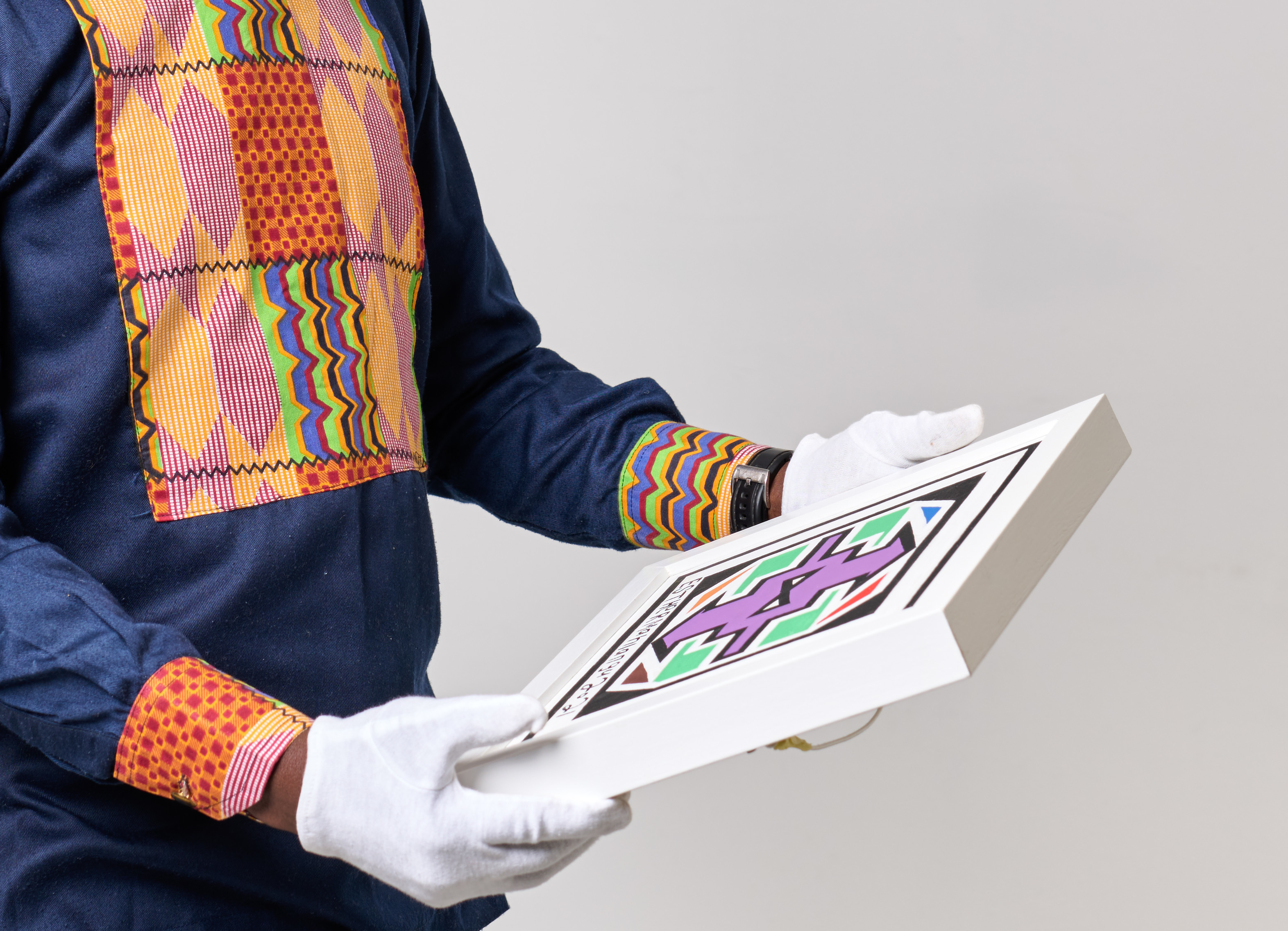
When investing in art, whether for financial benefit, aesthetic reasons or both, it is key to find both a framer and art conservator that you trust.
Over time, both the canvas/board and the paint itself will be effected by the environment. Although it might seem daunting at first, a few small changes and attention to your beloved artworks will stretch both their quality and value over the years.
Whether the work is being safely stored or hung on your wall, there are four important areas that need to be taken into consideration: Light, Temperature, Humidity, and Dust.
Light:
- Where possible, make sure that your acrylic painting has UV-protective glass to protect from any harsh lighting.
- Avoid placing paintings in direct sunlight, as this can cause damage in the form of fading of pigments or the yellowing of oil medium.
- Paintings that are lit by indirect daylight might still be damaged slightly by the UV radiation. Ideally, there should be blinds or a window filter to remove the UV component.
- Artificial lighting, when too harsh, can also affect your painting over time and it is advised to replace fluorescent lighting with low UV lighting, for example an LED lightbulb.
- Light damage is not only cumulative but it is irreversible, if the painting medium is sensitive due to exposed canvas or fugitive pigments, it is worth limiting both intensity and periods of exposure.
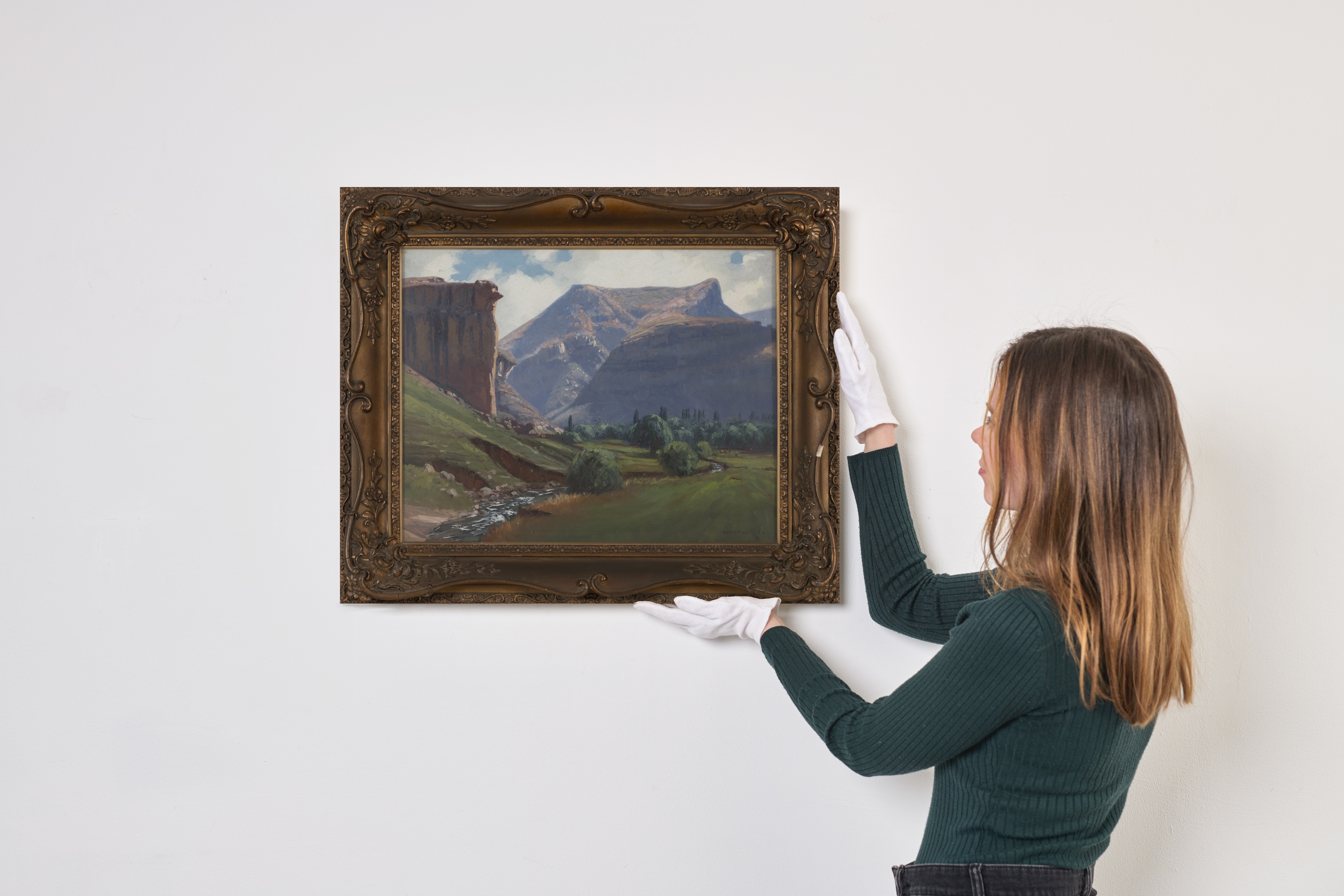
Installation view of Lot 18, (Painting Online Auction): Willem Hermanus Coetzer, Golden Gate, 1950
Temperature:
- It is best to keep paintings in a stable environment with limited extreme high or low temperatures.
- Rapid fluctuations in temperature can pose a great risk to the work.
- Do not hang your painting above a fireplace, heater, boiler or on external/outside walls. The heat dries out the material of the painting which speeds up the natural aging process as well as softening the paint and varnish to allow dust and dirt to be absorbed into the pigment.
- Acrylic paintings or paintings on wooden supports are especially sensitive to temperature.
- Paintings on wooden panels may crack and split if the wood becomes too dry.
- The ideal museum recommended temperature is between 18 and 24°C.
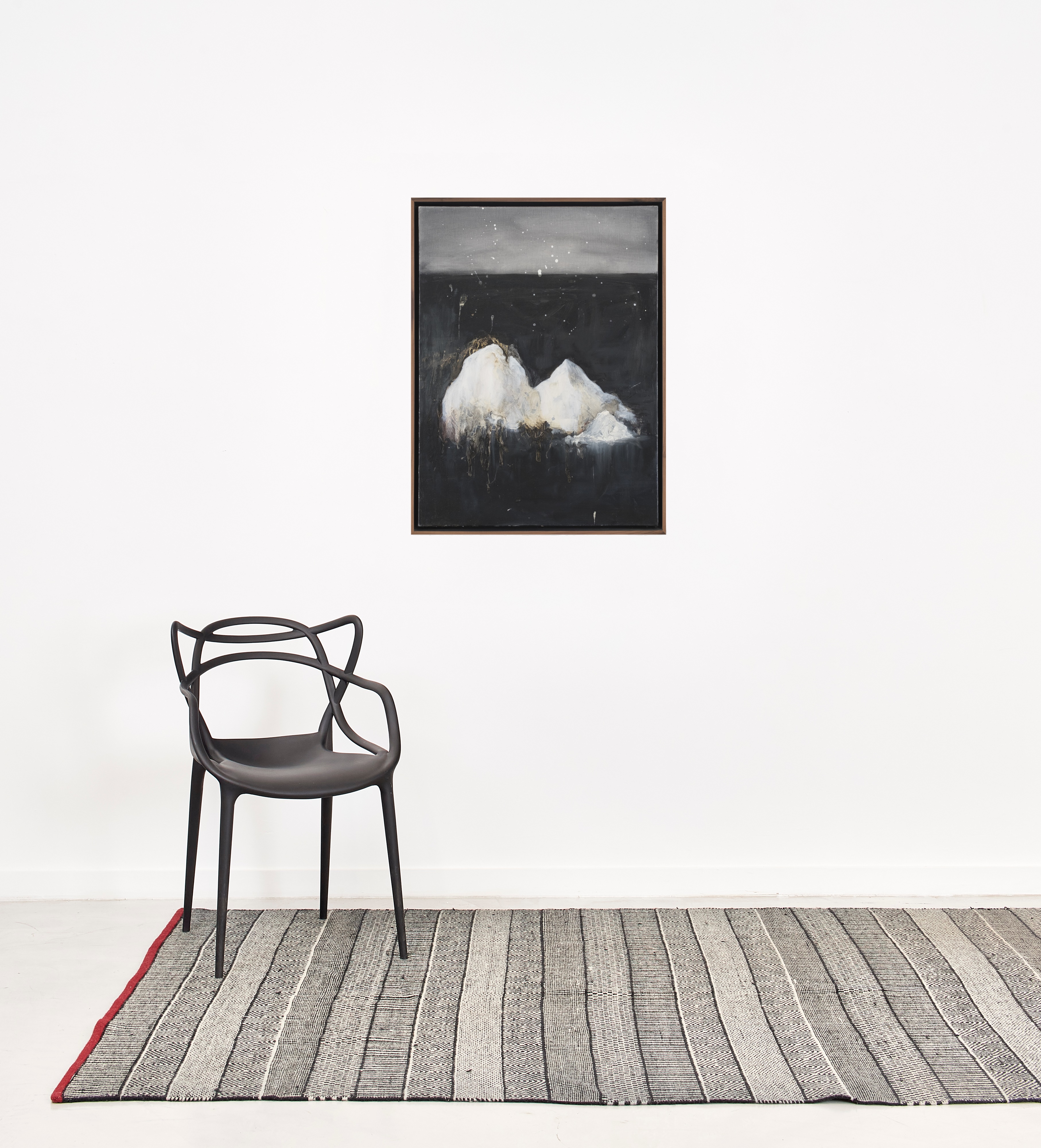
Installation view of Lot 28 (Painting, Online Auction): Mia Chaplin, Evening landscape, 2011
Humidity:
- Avoid extreme changes in humidity, as this may cause splits or cracks in wooden panels and the deformation of canvas supports.
- Oil paintings should never be placed in high-moisture areas such as bathrooms or kitchens.
- High humidity conditions for a prolonged time most likely will cause mould growth, which can take the form of black spots on the painting.
- Any contact with water or liquids will cause damage to the varnish, paint layers, ground and supports.
- On the other hand, if the humidity is too low, it may cause the paint to become dry and brittle, which leads to cracking and possible paint loss.
- The museum recommended relative humidity should be between 40 and 60% with a maximum of 10% variance within 24 hours.
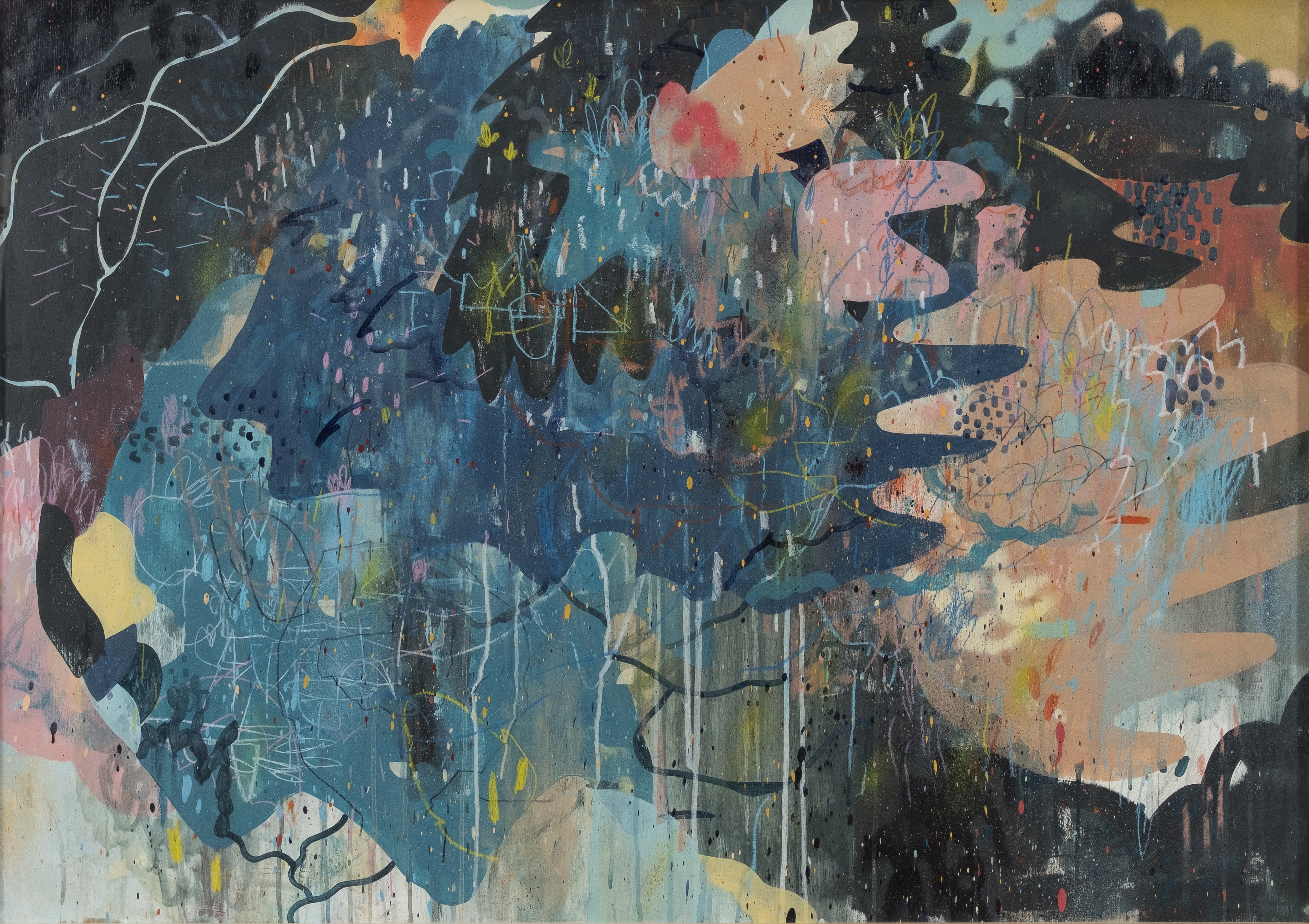
Lot 52 (Painting, Online Auction): Paul Senyol, China Rose, 2015
Dust:
- Dust will naturally accumulate on your painting with time. To avoid this as much as possible, keep paintings away from open windows and areas that are particularly dusty.
- The best option is to use compressed air to get rid of dust.
- You can also gently clean with a dry, soft, lint-free cloth, making sure not to press on the paint.
- Paintings should usually be cleaned every few months, or as needed.
- Paintings should not be cleaned too often as this can cause damage to the surface of the work.
- If there is a considerable amount of dirt that has accumulated on the surface, it is recommended to take it to an art restorer as rigorous cleaning will most likely cause scratches to the surface or the paint layers to lift/flake.
- Where possible, try to use clean, cotton gloves when handling the painting to avoid dirt and natural oils leaving fingerprints on the surface.
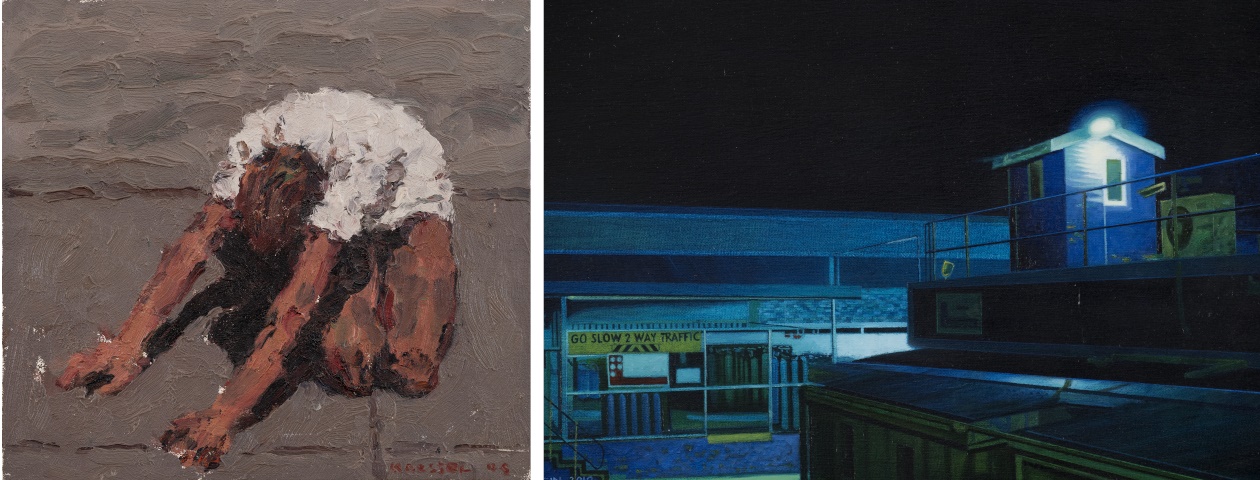
Left | Lot 11 (Painting, Online Auction): Anton Karstel, Fig 441, 2005
Right | Lot 13 (Painting Online Auction): Henk Serfontein, Night scene, 2010
View Paintings on Aspire's Painting Online Auction
Painting
1 - 13 August 2024
SALE ENQUIRIES
Cape Town: +27 21 422 5100 | amy@aspireart.net
Johannesburg: +27 10 109 7989 | carina@aspireart.net